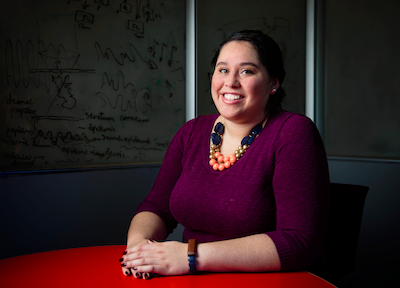Assistant Professor of Computer Science Sarah Brown is interested in adapting machine learning algorithms and the systems they are embedded in to prevent Artificial Intelligence from reinforcing patterns of discrimination.
“Previously, programmers directly wrote all of the instructions in the algorithms that were deployed, but machine learning allows programmers to define general goals and describe how to learn from the world, feed their algorithm a bunch of data, and let that algorithm write another algorithm. These computer generated algorithms require more careful examination in order for them to not learn the wrong things about the world,” she says.
Brown and undergrad Emmely Alvarez, a senior, are now working in collaboration with a social psychologist at Brown University to develop a model for human experiments. They want to understand statistical notions of fairness, including what types of fairness people want algorithms to respect, what social factors influence their preferences, and what features of an algorithm influence their preferences.
“My role thus far has been to apply my skills in machine learning to measure different definitions of fairness,” says Alvarez, who hopes to pursue a master’s degree at URI after graduation. She wants to continue working in computer science with the guidance of Dr. Brown.
Read more about Sarah Brown here.

